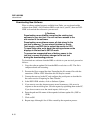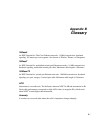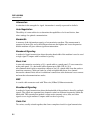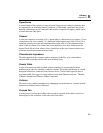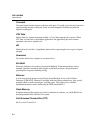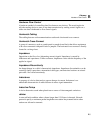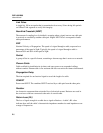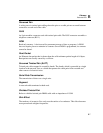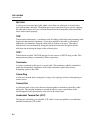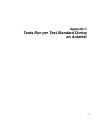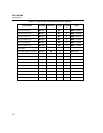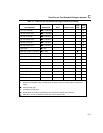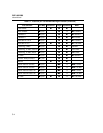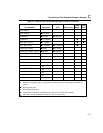
DSP-100/2000
Users Manual
B-8
Split Pair
A wiring error in twisted pair cable where a wire from one cable pair is twisted with a
wire from another cable pair. Though the pin-to-pin connections may be correct, splitting
the cable pairs causes excessive crosstalk because the electromagnetic fields around the
wires cannot cancel properly.
TDR
Time domain reflectometry. A technique used for finding cable faults and measuring cable
length and characteristic impedance. A test pulse applied to the cable is reflected by
impedance discontinuities along the cable (such as a short or an open). The cable’s
characteristics are determined by timing the duration between the test pulse and the
reflection and analyzing the shape of the reflected pulse.
TDX
Time domain crosstalk. The TDX analyzer locates sources of NEXT along a cable. This
measurement technique is patented by Fluke corporation.
Terminator
A resistor connected to the end of a coaxial cable. The terminator, which is intended to
match the characteristic impedance of the cable, eliminates signal reflections by
dissipating signals in the cable.
Token Ring
A local area network that is arranged in a ring or star topology and uses token passing to
control access.
Twisted Pair
A cable pair made of two wires that are twisted together to minimize crosstalk to other
cable pairs. The twisting minimizes crosstalk because it causes cancellation of the
electromagnetic fields generated by each wire in the twisted pair.
Unshielded Twisted Pair (UTP)
Twisted pair cable that is not shielded. UTP cable is more susceptible to crosstalk than
shielded twisted pair (STP) cable.



